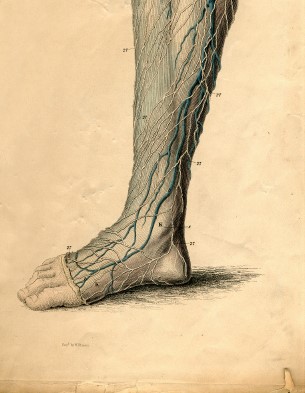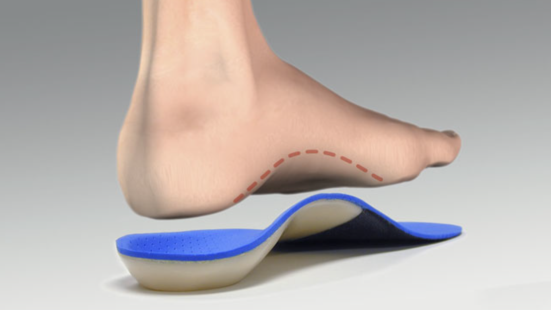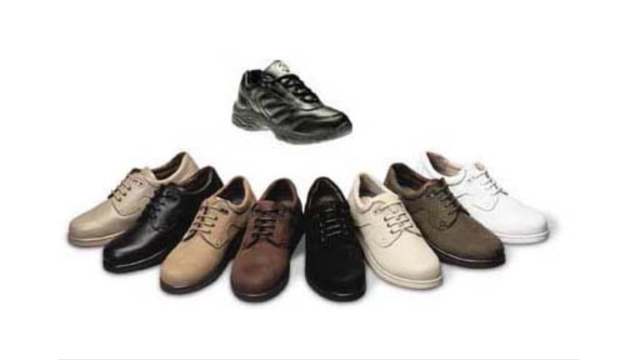November 2014
Fitbit Smartphone App Fuels Washington, D.C.’s Competitive Nature
 The Fitbit allows users to track their steps, miles, calories burned, and heart rate with the help of assisting smartphone apps and sensors. Recently, lawmakers and administration officials of Washington, D.C. are using these new forms of technology to fuel their competitive ways. Many employers are even allowing in-office competitions, which helps workers reach their doctor recommended 10,000 steps a day. “The type of people you find on Capitol Hill are very competitive by nature,” Alexa Marrero says, “You have a bunch of Type A personalities in jobs prone to keeping you behind a desk all day, so there are a lot of people who have found this as a fun way to get up.”
The Fitbit allows users to track their steps, miles, calories burned, and heart rate with the help of assisting smartphone apps and sensors. Recently, lawmakers and administration officials of Washington, D.C. are using these new forms of technology to fuel their competitive ways. Many employers are even allowing in-office competitions, which helps workers reach their doctor recommended 10,000 steps a day. “The type of people you find on Capitol Hill are very competitive by nature,” Alexa Marrero says, “You have a bunch of Type A personalities in jobs prone to keeping you behind a desk all day, so there are a lot of people who have found this as a fun way to get up.”
Walking is a tried and tested way to successfully exercise the feet. To learn more, consult with one of our podiatrists of University Foot & Ankle Center. Our doctors will answer any of your foot- and ankle-related questions.
Exercise for Your Feet
If you spend most of your time on your feet, or don’t either way your feet should deserve attention. There are many people who exercise regularly and still don’t spend enough time to care for their feet. Your foot does get exposure that requires maintenance since your health has a lot to do with footing.
Exercises
Toe rise – this exercise involves standing on the tip-toes for a count of 15 seconds, then resting your feet on ground. This exercise should be repeated three times a day to strengthen the feet.
Toe Pick-ups – the toes are exercises that are done by picking up small items using your toes. This helps strengthen the muscles on the upper part of the feet. Three sets along with 15 seconds being held should be completed. Small items like marbles or stationary will work.
Ankle Pump – can be performed upwards or downwards. The workout can be completed both ways at the same time. This involves flexing the foot either towards the shin or to the ground. This makes the foot work very well, working large parts of the muscles.
For more information about Exercise for Your Feet, follow the link below.
If you have any questions, please feel free to contact one of our offices located in East Brunswick and Monroe Township, NJ. We offer the newest diagnostic and treatment technologies for all your foot and ankle needs.
Read more about Exercise for Your Feet
Systemic Disease Linked to Increased Risk of Heart Problems
 Members of the researcher faculty at the St. George’s University of London recently discovered that diabetes patients with the systemic disease peripheral neuropathy may be more likely to get heart disease than other diabetics. They arrived at this conclusion after detailed observation of around 13,000 type-2 diabetes patients who had never had any cardiopulmonary problems.
Members of the researcher faculty at the St. George’s University of London recently discovered that diabetes patients with the systemic disease peripheral neuropathy may be more likely to get heart disease than other diabetics. They arrived at this conclusion after detailed observation of around 13,000 type-2 diabetes patients who had never had any cardiopulmonary problems.
The researcher’s findings might be useful for doctors who are trying to determine the probability that a particular diabetes patient will get heart disease. “There is likely an unmet potential to reduce cardiovascular disease in this group of patients through greater monitoring and simple treatments," stated Robert Hinchliffe, Senior Lecturer and Consultant in Vascular Surgery.
Systemic diseases typically affect the whole body, but they can be particularly detrimental to the heels. If a systemic disease is causing you to experience lower extremity problems, see one of our podiatrists of University Foot & Ankle Center, LLC. Our doctors will analyze your need for treatment and provide you with a suitable form of medical care.
Systemic Diseases and the Feet
Systemic diseases affect the whole body, and symptoms usually are displayed in the feet. This condition can make a patient’s ability to walk unbearable. Systemic diseases include: gout, diabetes mellitus, neurological disorders, and arthritis.
Gout – is caused by an excess of uric acid in the body. Some common symptoms include pain, inflammation, and redness at the metatarsal/phalangeal joint of the base big toe. Gout can be treated by NSAIDs, which relieves pain and inflammation and other drugs which lowers the acid levels in the body.
Diabetes mellitus- is an increase in the level of blood sugar in which the body cannot counteract with the insulin in the body. When the body doesn’t produce enough insulin this is a factor in Diabetes.
*Diabetes of the Feet
*Diabetic Neuropathy – may lead to damaged nerves and affect the feet through numbness and loss of sensation.
*Peripheral Vascular Disease- can restrict the blood flow to the feet, and often times lead to amputation of the feet.
For more information about Systemic Diseases and the Feet, follow the link below.
If you have any questions, please contact one of our offices located in East Brunswick and Monroe Township, NJ. We offer the newest diagnostic and treatment technologies for all your foot care needs.
Read more about Systemic Diseases and the Feet
Teaching Assistant Accuses Flip-Flops and Flat Shoes and Foot Pain Culprit, Not High Heels
 Michele Crow, a 41-year-old teaching assistant has always preferred flip-flops and flat shoes over high heels, never taking into consideration that flat shoes can create just as many problems. Crow started to notice her foot problems when she went on vacation to Portugal and realized that her wooden-soled flip-flops were creating an ache in the arch of her foot. When the teaching assistant went for a run a few days later, the pain worsened to the point that she could not walk and had to see a doctor. Crow has since been diagnosed with plantar fasciitis and is taking on a wide variety of treatments to try and fix her foot. She states, “You often hear about the twisted ankles, bunions, and backache that can be caused by wearing high heels, but I had no idea flat shoes could also damage your feet so badly.”
Michele Crow, a 41-year-old teaching assistant has always preferred flip-flops and flat shoes over high heels, never taking into consideration that flat shoes can create just as many problems. Crow started to notice her foot problems when she went on vacation to Portugal and realized that her wooden-soled flip-flops were creating an ache in the arch of her foot. When the teaching assistant went for a run a few days later, the pain worsened to the point that she could not walk and had to see a doctor. Crow has since been diagnosed with plantar fasciitis and is taking on a wide variety of treatments to try and fix her foot. She states, “You often hear about the twisted ankles, bunions, and backache that can be caused by wearing high heels, but I had no idea flat shoes could also damage your feet so badly.”
Flip-flops, while usually cited for their comfort, do not have the proper foot support. For more information, consult with one of our podiatrists of Univeristy Foot & Ankle Center, LLC. Our doctors will answer any of your foot- and ankle-related questions.
Flip-Flops and Feet
When the weather starts warming up, people enjoy wearing flip-flops. Flip-flops are comfortable, stylish, and easy to slip on and off, perfect for any summer beach goer. However, these shoes can cause harm to the feet.
How Can Flip-Flops Affect Me Long-Term?
- Ankle problems
- Hip problems
- Lower back problems
- Pain in the balls of the feet
- Problems with foot arches
- Changes in the way you walk
Are there injuries associated with flip-flops?
Yes. Since flip-flops are relatively weak and do not provide the same amount of support as sneakers, people who wear flip-flops are more susceptible to injuries. On top of that, the open nature of the shoe makes your feet more prone to other problems, such as cuts and even infections. Common injuries and ailments include:
- Sprained ankles
- Blisters
- Infections
- Cuts and Scrapes
I like wearing flip-flops, are there safe alternatives?
When buying flip-flops, try to find ones that have sturdy soles and are made of high quality materials that will support for your feet. These flip-flops will cost more, but will also last longer as a result.
For more information about Flip Flops, follow the link below.
If you have any questions, please contact one of our offices located in East Brunswick and Monroe Township, NJ. We offer all the newest in diagnostic and treatment technologies for all your foot and ankle conditions.
Read more about Flip Flops and Your Feet
Custom-Sized Shoes provided for Stratford Festival Performers
 Specially crafted shoes are made for the various actors and dancers performing at the annually-held Stratford Festival and its several productions. The Stratford shoemakers crank out about 1000 pairs of shoes each year in preparation for the festival. Performers often request customized specifications for their shoes to optimize foot support while on stage.
Specially crafted shoes are made for the various actors and dancers performing at the annually-held Stratford Festival and its several productions. The Stratford shoemakers crank out about 1000 pairs of shoes each year in preparation for the festival. Performers often request customized specifications for their shoes to optimize foot support while on stage.
The theater’s upcoming production of Crazy For You features numerous tap dancers; several of these dancers have requested altered shoe sizes to allow a specific amount of toe room for dancing. Shoes are either altered by the Stratford shoemakers themselves or off-site. “It makes a difference to how you perform, especially with tap dancing,” said Kerry Gage, associate choreographer of Crazy for You. “Everybody’s feet are entirely different.”
Getting the right shoe size is important for those who rely on the performance of their feet. If you would like more information in determining your shoe size, speak to one of our podiatrists of Univeristy Foot & Ankle Center, LLC. Our doctors can assist you with all of your foot and ankle concerns.
Getting the Right Shoe Size
Sometimes it may be difficult finding the right shoe size especially because shoe sizes tend to vary depending on the brand and company you are looking for. A size 6 for one brand may be a size 7 in another. Although many people know their exact shoe size, it can range within 2 sizes depending on where they shop.
So it is important not to always go for a size 7 just because you think you might be a size 7 universally. It is best to try on the shoe and walk around for a bit to see how it fits and how it feels. Comfort is essential and the fitting has to be well otherwise it can lead to blisters, bruises at the back of the ankle and it can also hurt your toes if the shoe is too tight for example.
People walk a lot, so it is important for you to find what is comfortable when it is possible.
For more information about Getting the Right Shoe Size, follow the link below.
If you have any questions, please contact one of our offices located in East Brunswick and Monroe Township, NJ. We offer all the newest in diagnostic and treatment technologies for all your foot and ankle conditions.
Read more about Getting the Right Shoe Size
Blog Archives
- April 2024
- March 2024
- February 2024
- January 2024
- December 2023
- November 2023
- October 2023
- September 2023
- August 2023
- July 2023
- June 2023
- May 2023
- April 2023
- March 2023
- February 2023
- January 2023
- December 2022
- November 2022
- October 2022
- September 2022
- August 2022
- July 2022
- June 2022
- May 2022
- April 2022
- March 2022
- February 2022
- January 2022
- December 2021
- November 2021
- October 2021
- September 2021
- August 2021
- July 2021
- June 2021
- May 2021
- April 2021
- March 2021
- February 2021
- January 2021
- December 2020
- November 2020
- October 2020
- September 2020
- August 2020
- July 2020
- June 2020
- May 2020
- April 2020
- March 2020
- February 2020
- January 2020
- December 2019
- November 2019
- October 2019
- September 2019
- August 2019
- July 2019
- June 2019
- May 2019
- April 2019
- March 2019
- February 2019
- January 2019
- December 2018
- November 2018
- October 2018
- September 2018
- August 2018
- July 2018
- June 2018
- May 2018
- April 2018
- March 2018
- February 2018
- January 2018
- December 2017
- November 2017
- October 2017
- September 2017
- August 2017
- July 2017
- June 2017
- May 2017
- April 2017
- March 2017
- February 2017
- January 2017
- December 2016
- November 2016
- October 2016
- September 2016
- August 2016
- July 2016
- June 2016
- May 2016
- April 2016
- March 2016
- February 2016
- January 2016
- December 2015
- November 2015
- October 2015
- September 2015
- August 2015
- July 2015
- June 2015
- May 2015
- April 2015
- March 2015
- February 2015
- January 2015
- December 2014
- November 2014
- October 2014
- September 2014
- August 2014
- July 2014




